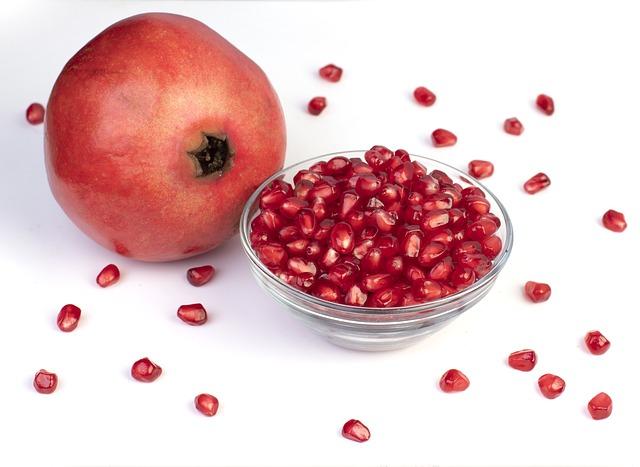In the bustling symphony of life, where each day presents a new crescendo of challenges and triumphs, our brains are the silent maestros orchestrating every thought, decision, and emotion. Yet, how often do we pause to consider the nourishment these remarkable organs require to thrive? Welcome to a journey where empathy meets science, as we explore the profound impact of nutrition on brain health. Imagine your brain as a vibrant garden, where the right nutrients can cultivate creativity, resilience, and clarity. This article invites you to discover how simple dietary choices can become the seeds of cognitive vitality, nurturing your mind to flourish amidst the complexities of modern living. Together, let’s embark on a path to empower our brains, honoring the intricate dance of neurons and nutrients that sustain our essence and enrich our lives.
Nourishing Your Mind: The Power of Brain-Boosting Foods
Feeding your mind starts with feeding your body, and certain foods hold the key to unlocking your brain’s full potential. Blueberries, often dubbed ”nature’s candy,” are packed with antioxidants that protect the brain from oxidative stress and may improve communication between brain cells. Similarly, fatty fish like salmon and mackerel are rich in omega-3 fatty acids, essential for maintaining the structural integrity of brain cells and enhancing cognitive function.
For a sharper memory and improved focus, consider adding the following to your diet:
- Leafy greens: Spinach, kale, and broccoli are not only good for your body but also your brain, thanks to their high levels of vitamins and minerals.
- Nuts and seeds: A handful of walnuts or a sprinkle of flaxseeds can provide you with vitamin E and omega-3s, which are linked to slower cognitive decline.
- Whole grains: Foods like oatmeal, whole-grain bread, and brown rice can improve concentration by providing a steady supply of energy to the brain.
By incorporating these nutrient-rich foods into your meals, you’re not just fueling your body but also nurturing a healthier, more resilient mind. Listen to your body’s needs and make choices that support your mental well-being.

Embrace the Rainbow: Antioxidants for Mental Vitality
In the quest for mental clarity and emotional resilience, a colorful plate might just be your best ally. The vibrant hues of fruits and vegetables are not only a feast for the eyes but also a powerhouse of antioxidants that support brain health. Think of blueberries, spinach, and carrots as more than just a side dish; they’re your brain’s best friends, rich in compounds that fight oxidative stress and inflammation, two culprits behind cognitive decline.
Incorporating a spectrum of colors into your meals can be both fun and rewarding. Consider these delightful options to boost your mental vitality:
- Red: Tomatoes and red peppers, brimming with lycopene and vitamin C.
- Orange: Sweet potatoes and carrots, loaded with beta-carotene.
- Yellow: Corn and yellow squash, full of lutein and zeaxanthin.
- Green: Broccoli and kale, packed with sulforaphane and folate.
- Blue/Purple: Blueberries and eggplants, rich in anthocyanins.
Let these natural hues inspire your culinary creations, and relish the mental clarity that comes with a rainbow-rich diet.
Omega-3s and You: Enhancing Cognitive Function with Healthy Fats
Incorporating omega-3 fatty acids into your diet is like giving your brain a warm, nurturing hug. These essential fats, found in foods like salmon, walnuts, and flaxseeds, play a pivotal role in maintaining cognitive vitality. They help form the structural components of brain cells and promote communication between neurons, effectively enhancing memory, focus, and overall mental clarity. The journey to improved cognitive function can be as simple as making mindful food choices, ensuring that your brain receives the nutrients it craves.
- Salmon: Rich in DHA, an omega-3 fatty acid crucial for brain health.
- Walnuts: Not only are they shaped like a brain, but they’re also packed with ALA, another beneficial omega-3.
- Flaxseeds: These tiny seeds are a powerhouse of omega-3s and can be easily added to smoothies or oatmeal.
As you embark on this nutritional journey, remember that the benefits of omega-3s are not just limited to cognitive function. They also support heart health, reduce inflammation, and can even uplift your mood. By embracing these healthy fats, you’re not just feeding your brain; you’re nourishing your entire being.
Mindful Eating: Creating a Diet that Supports Emotional Well-being
Our relationship with food is deeply intertwined with our emotions, often reflecting our mental state. By choosing to eat mindfully, we can cultivate a diet that not only fuels our bodies but also nurtures our emotional well-being. Start by embracing the concept of intuitive eating, where you listen to your body’s hunger cues and honor them without judgment. This approach encourages a more profound connection with your food, leading to a more satisfying and balanced diet.
- Focus on whole foods: Incorporate more fruits, vegetables, whole grains, and lean proteins into your meals. These nutrient-rich foods support brain health and help stabilize mood.
- Stay hydrated: Drinking enough water is crucial for maintaining cognitive function and emotional balance.
- Limit processed foods: Foods high in sugar and unhealthy fats can lead to mood swings and energy crashes.
- Practice gratitude: Before eating, take a moment to appreciate the food in front of you. This simple act can transform your eating experience and enhance emotional satisfaction.
By integrating these mindful practices into your daily routine, you can create a diet that not only supports physical health but also fosters a sense of emotional well-being, ultimately leading to a more fulfilling and joyful life.


